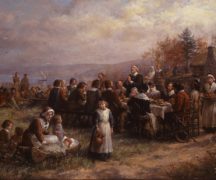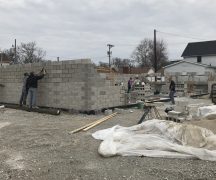WASHINGTON — Diane Howard of Cleveland traveled to the nation’s capital with hundreds of other women to urge Congress to pass an elections overhaul and undo new state laws that restrict voting access.
A community activist for half a century, Howard said that this is not the first time she’s seen voting rights under attack. “What we did in the ‘60s is we kept protesting,” the Ohio woman said. “A lot of voter rights were restricted in the ‘60s.”
At 71, she was the oldest woman participating in the Poor People’s Campaign protest, titled “A Season of Nonviolent Moral Direct Action,” in front of the U.S. Supreme Court on Monday.
U.S. Capitol Police officers arrested about 100 of the women — although not Howard — for civil disobedience at the march, including Poor People’s Campaign state leaders from North Carolina, Minnesota, Wisconsin, Ohio and Maine.
The protest followed the recent arrest of Rep. Joyce Beatty, (D-Ohio), the chair of the Congressional Black Caucus, who was taken into custody by Capitol Police Thursday. Beatty led a march to the Senate Hart Office Building atrium to speak out against the assault on voting rights. “Be assured that this is just the beginning,” she said in a statement.
For the Poor People’s Campaign, this was the first event in a weeks-long push calling on Congress to end the Senate filibuster, pass voting rights legislation, raise the federal minimum wage to $15 an hour and pass an elections and voting rights expansion package called the “For The People Act.”
On the steps of the court, the co-chair of the Poor People’s Campaign, Rev. Dr. Liz Theoharis, called on Congress to move on voting rights, warning that “our democracy is in peril.” Protestors taking part in the Women’s Moral March included women leaders representing 42 states.
“In this time, when our voting rights are under attack, and economic justice is being denied, we must, and so we are, calling out the immoral obstructionism of Congress,” said Theoharis, who was also arrested Monday.
The march was part of a nationwide attempt by Democratic lawmakers, social justice organizations and activists to protect voting rights as Republicans in state legislatures move to introduce and pass restrictive voting laws in response to the 2020 presidential election won by President Joe Biden.
Maureen Taylor, state chair of the Michigan Welfare Rights Organization, said she has seen Republican state representatives in her state introduce dozens of restrictive voting laws.
“The right to vote is sacred,” she said.
Michigan lawmakers introduced a sweeping package of 39 bills in March that would restrict the use of early voting drop boxes and require voters to cast ballots with a provisional ballot if they do not have a photo ID with them at their polling place.
“There’s a level of fear that every American needs to possess at this moment,” Taylor said.
She added that the U.S. Senate should get rid of the filibuster and pass the “John Lewis Voting Rights Act,” which would restore a pre-clearance formula set by the Voting Rights Act of 1965 that was struck down by a 2013 Supreme Court decision.
The pre-clearance formula required states with a history of implementing discriminatory voting laws, such as Arizona, Louisiana, Virginia and Georgia, among others, to get federal approval before making any changes to voting laws.
The Brennan Center, has found that as of May, state Republican legislators have introduced 389 bills with restrictive voting provisions in 48 states. Of those, 22 bills have been enacted, with 61 bills in 18 states still pending.
Texas Democrats also fled the state after Republican Gov. Greg Abbott called a special session to pass a restrictive voting law there.
Those state Democrats will have to stay out of Texas for several weeks to prevent a quorum to block the special assembly. In the meantime, they have spent their time lobbying congressional Democrats to pass the federal elections overhaul.
However, the bill’s future is highly uncertain—it passed the House, but was blocked by Republicans in the Senate.
Senate Majority Leader Chuck Schumer, a New York Democrat, has vowed to bring the bill to the Senate floor again, where he will not only have to find support from 10 Republicans to but also bring along Sen. Joe Manchin III of West Virginia, who has publicly voiced his opposition, to meet the 60-vote threshold to advance legislation.
On Monday, as demonstrators marched in front of the Senate Hart Office Building, the Senate Rules Committee was holding a hearing in Georgia on voting rights, with Sen. Raphael Warnock, along with other Georgia officials, testifying. It was the first field hearing held by the committee in 20 years.
At the Washington protest, JaMelle Hill, from Kathleen, Ga., said the recent voting law passed in her state harms not only voters but also low-income people. It’s more difficult for them to have stable housing, and obtain identification cards like a driver’s license, she said.
“Poverty affects everyone,” she said, particularly children and women of color.
The Urban Institute, a left-leaning think tank, has projected that the poverty rate this year will be 13.7%, or about 1 in 7 Americans “may have annual family resources below the poverty threshold.” In 2018, the U.S. Census estimated that 38.1 million people in the U.S. lived in poverty, or a rate of 11.8%.
“What I’ve seen is a denial of rights in Georgia,” Hill said. “It’s been a denial of our civil rights, there’s been a denial of our human rights, and there’s been a denial of our voting rights.”
Throughout the year, congressional Democrats have held multiple hearings on voting rights.
The Biden administration has also raised concerns about states passing restrictive voting laws. The White House recently directed the Justice Department to file a suit against Georgia’s new law.
And while visiting her alma mater, Howard University, Vice President Kamala Harris announced that the Democratic National Committee would spend $25 million on a campaign to protect voting rights.
On Monday, the voting rights protestors formed a circle in front of the Senate Hart Office Building as Capitol Police officers pulled out plastic zip ties and arrested them, one by one.
“Forward together,” the crowd shouted as demonstrators were led away. “Not one step back.”
***
Also from Ohio Capital Journal:
Those who voted, registered illegally could face prosecution
More than 100 non-citizens could face penalties for having cast ballots or being illegally registered to vote during the 2020 election cycle, but it may take years to fully investigate and prosecute them.
Secretary of State Frank LaRose recently announced plans to refer 104 cases of non-citizens being illegally registered to vote and 13 other cases of non-citizens casting ballots to the state attorney general for review.
As the Ohio Capital Journal reported, the cases are outliers in an otherwise secure election system largely free from voter fraud. The 13 ballots made up .00016% of those cast in the 2020 primary and general elections.
Despite their rarity — and the acknowledgement by officials many of these acts were honest mistakes — Ohio prosecutors sometimes spend years pursuing the cases in court. Most often the cases lead to probation sentences and small fines. READ MORE
Report: 650,000 lead pipes still carry water in Ohio; 2nd most in U.S.
As many as 650,000 lead pipes statewide deliver water to Ohioans, according to a report released last week by the Natural Resources Defense Council.
This makes Ohio the second worst state in the nation as measured by the estimated number of lead pipes (technically known as lead-containing service lines) in the water system, behind only Illinois with 730,000.
“It matters because it’s like drinking your water through a lead straw,” said Erik Olson, a senior strategic director for health at the NRDC, in an interview.
Lead is a neurotoxin, and there is no safe level of exposure. Children and infants are especially vulnerable to lead exposure, which has been linked to damage to the central nervous system, learning disabilities, impaired hearing and impaired formation and function of blood cells. READ MORE





